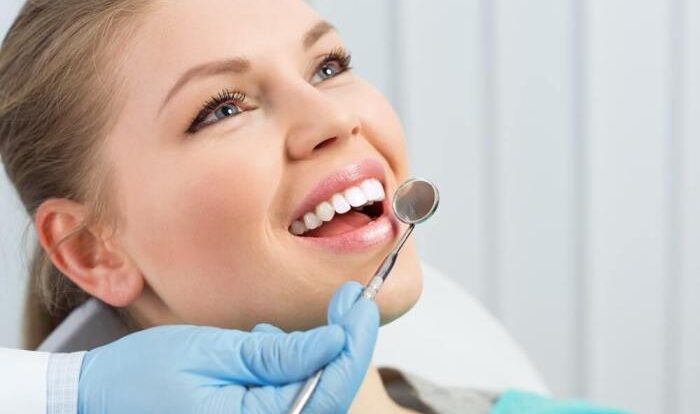
Discover how to cure gum disease without a dentist! This guide provides natural remedies, home care techniques, dietary modifications, and lifestyle changes that can help alleviate symptoms and improve gum health.
Gum disease is a common problem that affects millions of people worldwide. It’s caused by bacteria that accumulate on the teeth and gums, leading to inflammation, bleeding, and pain. While visiting a dentist is the most effective way to treat gum disease, there are also several things you can do at home to help manage symptoms and prevent further damage.
Natural Remedies
Gum disease is a common condition that can be treated with a variety of natural remedies. These remedies can help to reduce inflammation, pain, and bleeding, and can also help to kill bacteria that cause gum disease.
The most frequent type of dental disease is gum disease. There are ways to treat gum disease without seeing a dentist. If you’re experiencing gum disease symptoms, you may be wondering how to cure gum disease without a dentist. There are several effective methods you can try at home.
You can find more information about these methods by visiting this page: how to cure gum disease without a dentist .
Some of the most effective natural remedies for gum disease include:
Herbs, How to cure gum disease without a dentist
- Green tea:Green tea contains antioxidants that can help to reduce inflammation and kill bacteria.
- Sage:Sage is a natural antiseptic that can help to kill bacteria and reduce inflammation.
- Chamomile:Chamomile is a soothing herb that can help to reduce pain and inflammation.
Essential Oils
- Tea tree oil:Tea tree oil is a powerful antibacterial and antifungal agent that can help to kill bacteria and reduce inflammation.
- Clove oil:Clove oil is a natural anesthetic that can help to relieve pain.
- Myrrh oil:Myrrh oil is a natural antiseptic and astringent that can help to kill bacteria and reduce inflammation.
Other Natural Substances
- Salt water:Salt water can help to kill bacteria and reduce inflammation.
- Baking soda:Baking soda can help to neutralize acids in the mouth and reduce inflammation.
- Hydrogen peroxide:Hydrogen peroxide is a natural antiseptic that can help to kill bacteria.
It is important to note that natural remedies should not be used as a substitute for professional dental care. If you have gum disease, it is important to see a dentist to get a proper diagnosis and treatment plan.
Home Care Techniques

Maintaining proper oral hygiene is crucial for preventing and managing gum disease. Effective home care practices include brushing, flossing, using mouthwash, and regular dental checkups.
Brushing Techniques
Brush your teeth at least twice a day with a soft-bristled toothbrush and fluoride toothpaste. Angle the toothbrush at a 45-degree angle to the gum line and use gentle circular motions to remove plaque and bacteria.
Flossing Techniques
Flossing removes plaque and bacteria from between teeth where a toothbrush can’t reach. Use a piece of floss about 18 inches long and wrap it around your middle fingers. Gently slide the floss between your teeth, using a sawing motion to remove debris.
If you’re looking for a way to cure gum disease without a dentist, you’re in luck. There are a few simple things you can do at home to improve your oral health and get rid of gum disease. You can find more information on how to cure gum disease without a dentist by clicking the link.
The key is to start early and be consistent with your treatment. With a little effort, you can get rid of gum disease and improve your overall oral health.
Mouthwash
Antiseptic mouthwash can help reduce bacteria and freshen breath. Choose a mouthwash that contains fluoride to strengthen teeth and prevent cavities. Rinse your mouth with mouthwash for at least 30 seconds after brushing and flossing.
You can reverse gum disease without a dentist if you catch it early. There are a few things you can do at home to help cure gum disease, such as brushing and flossing regularly, using an antiseptic mouthwash, and eating a healthy diet.
If your gum disease is more advanced, you may need to see a dentist for treatment. However, if you’re looking for ways to cure gum disease without a dentist, there are a few things you can try, like this .
Regular Dental Checkups and Cleanings
Regular dental checkups allow your dentist to examine your teeth and gums for signs of gum disease. Professional cleanings remove plaque and tartar buildup that can’t be removed with home care alone.
Dietary Modifications

Dietary habits significantly influence gum health. Certain foods and nutrients contribute to the development of gum disease, while others can promote its prevention and management.
Foods to Avoid or Limit
Sugary drinks, processed foods, and refined carbohydrates are major culprits in gum disease. Sugary drinks feed bacteria that produce acids, which attack tooth enamel and gums. Processed foods often contain preservatives and additives that can irritate gums. Refined carbohydrates, such as white bread and pasta, break down quickly into sugar, fueling the growth of bacteria.
Benefits of Fruits, Vegetables, and Whole Grains
In contrast, incorporating fruits, vegetables, and whole grains into the diet provides essential nutrients that support gum health. Fruits and vegetables are rich in antioxidants and vitamins that help strengthen gums and reduce inflammation. Whole grains contain fiber, which promotes a healthy digestive system and reduces the risk of gum disease.
Lifestyle Changes

Lifestyle choices significantly impact gum health. Understanding the influence of smoking, stress, and sleep deprivation can guide individuals toward positive modifications that promote optimal gum health.
Smoking
- Tobacco use damages the immune system, making it harder for the body to fight off gum disease.
- Nicotine constricts blood vessels, reducing oxygen and nutrient supply to the gums.
- Tar accumulates in the pockets between the teeth and gums, providing a breeding ground for bacteria.
Stress
Chronic stress can weaken the immune system, making the body more susceptible to gum disease. Stress hormones, such as cortisol, can break down gum tissue and reduce blood flow to the gums.
Sleep Deprivation
Lack of sleep can compromise the immune system and reduce the body’s ability to fight off infection. Sleep deprivation can also lead to increased inflammation, which is a contributing factor to gum disease.
Recommendations
- Quit smoking or avoid starting.
- Manage stress through techniques like exercise, yoga, or meditation.
- Aim for 7-9 hours of quality sleep each night.
Alternative Therapies

Alongside conventional treatments, exploring alternative therapies may provide additional support in managing gum disease. These therapies offer potential benefits but come with limitations. Consulting a healthcare professional before incorporating any alternative therapies into your routine is crucial.
Oil Pulling
Oil pulling involves swishing a tablespoon of oil, such as coconut or sesame oil, in the mouth for 15-20 minutes daily. It is believed to draw out toxins and bacteria, reducing inflammation and improving gum health. However, scientific evidence supporting these claims is limited, and further research is needed to establish its efficacy.
Acupuncture
Acupuncture, a traditional Chinese medicine technique, involves inserting thin needles into specific points on the body. It is thought to stimulate the body’s natural healing response and reduce inflammation. Some studies suggest acupuncture may alleviate gum disease symptoms, but more research is necessary to determine its long-term effects.
Herbal Supplements
Certain herbal supplements, such as green tea extract and curcumin, have antioxidant and anti-inflammatory properties. While some research indicates their potential in reducing gum inflammation, it is essential to note that not all supplements are regulated, and their safety and effectiveness can vary.
Consulting a healthcare professional is recommended before using herbal supplements.
Wrap-Up: How To Cure Gum Disease Without A Dentist
By following the tips Artikeld in this guide, you can improve your gum health and reduce the risk of developing gum disease. Remember to consult with a healthcare professional if symptoms persist or worsen, as they may indicate an underlying medical condition.
FAQ Resource
Can I cure gum disease completely without seeing a dentist?
While it’s possible to alleviate symptoms and improve gum health at home, professional dental care is essential for treating severe cases of gum disease and preventing future complications.
How long does it take to cure gum disease?
The time it takes to cure gum disease varies depending on the severity of the condition and the individual’s response to treatment. With proper care, symptoms can improve within a few weeks to months.
Is it safe to use natural remedies for gum disease?
Some natural remedies may provide temporary relief from gum disease symptoms, but it’s important to consult with a healthcare professional before using them. Some remedies may interact with medications or have other side effects.





